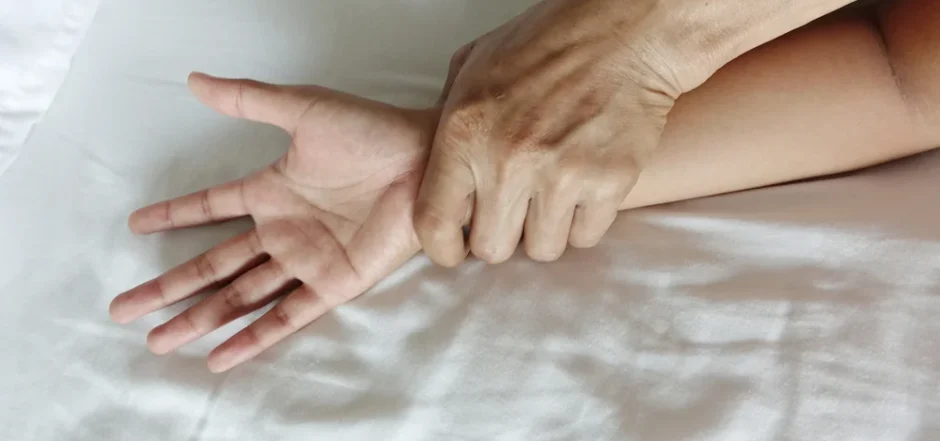Evidence in Sex Crimes Cases and St. Paul Criminal Defense Attorneys

Willaim Gladstone was wrong, at least with regard to evidence in sex crimes cases. This English statesman once said that justice delayed is justice denied. That might be true for the state, but it is definitely not true from St. Paul criminal defense attorneys.
The state has the burden of proof in criminal cases. And, evidence degrades over time. Memories inevitably fade and physical evidence often gets lost. The less evidence the state has, the easier it is to create doubt. And that’s all the defendant must do.
So, to undermine the evidence in a sex crimes case, a St. Paul criminal defense attorney must often delay the case as long as possible. That’s usually frustrating for everyone involved, but it is a necessary tactic. Additionally, there are some ways to directly attack the state’s evidence in a sex crime case, as outlined below.
Procedural Issues
Physical evidence can be tangible, like a pornographic image, or intangible, like a defendant’s statement. In both cases, police officers must strictly obey some procedural requirements, or the evidence could be inadmissible in court.
Many sex crime cases involve child pornography. These materials are very broadly defined in Section 617.246 of the Minnesota Statutes.
Incidentally, the image or material itself need not be pornographic. If the purveyor claimed the item was lewd or inappropriate, that’s probably enough for possession or distribution charges to hold up in court.
Sometimes, police officers obtain search warrants before they seize evidence. That’s especially the case in large-scale investigations. These warrants often rely on informers’ tips, and in most cases, these informers receive substantial payment.
Since many people will say almost anything for money or leniency, Ramsey County judges scrutinize such warrants very carefully. Some reliability factors to consider include:
- Corroborated or uncorroborated nature of the information,
- Informer’s track record,
- Amount of payment, and
- Police officer’s motive.
Ramsey County prosecutors cannot work backward. Lawyers cannot argue that if the tip was accurate, it must have been reliable. Such information stands or falls on its own.
In other possession cases, things happen so quickly that officers do not bother with search warrants. Instead, they rely on a search warrant exception, such as:
- Consent: Owners may give officers permission to search vehicles, dwellings, personal items, or any other property. In this context, consent is an affirmative, voluntary act. Excessive police bullying could render consent ineffective.
- Plain View: If officers see contraband, like pornography, weapons, or drugs, in plain view, they may seize it without a warrant. Officers must legally be in that place at that time. So, if a St. Paul criminal defense attorney invalidates the stop, the judge must throw out any seized evidence as well.
- Exigent Circumstances: Sometimes, officers respond to disturbance calls or otherwise believe that someone might be in jeopardy. In these situations, they may sweep through the vehicle or dwelling and seize any contraband they see in plain view.
Other search warrant exceptions include the automobile exception, limited searches incident to a lawful arrest, and weapons pat-down stops. Special rules usually apply if the defendant is currently on probation or parole.
Finally, when officers detain suspects, they almost always question them. Unless these suspects have been properly Mirandized, such statements are inadmissible. Courts require police to administer the Miranda warnings (you have the right to remain silent, etc.) when custodial interrogation begins.
In plain English, custodial interrogation means officers ask questions and defendants do not feel free to leave. Many times, this phase begins as soon as officers approach suspects and say anything at all.
St. Paul Criminal Defense Attorneys and Eyewitness Evidence
In most criminal sexual contact and other such cases, eyewitness testimony is key. That testimony could be from the alleged victim or a third-party witness.
Generally, alleged CSC victims know their alleged attackers. And, in most of these cases, alcohol is involved. This substance impairs memory. When people do not remember exactly what happened, their brains often fill in the gaps. So, the alleged victim’s recollection of what happened or what was said regarding consent is often not accurate.
A similar issue often comes up with regard to live and photo lineups. Many times, these lineups are not double-blind. Usually, the administering officer knows the suspect’s identity. If that’s the case, the officer often transmits subtle clues, such as placing the suspect’s picture in the center of a photo lineup array.
Reach Out to an Aggressive Lawyer
Evidence in sex crimes cases is rarely ironclad. For a free consultation with an experienced St. Paul criminal defense attorney, contact Capitol City Law Group, LLC. Go online now, call us at 651-705-8580, or stop by 287 6th St E, Suite 20, St Paul, MN 55101.




